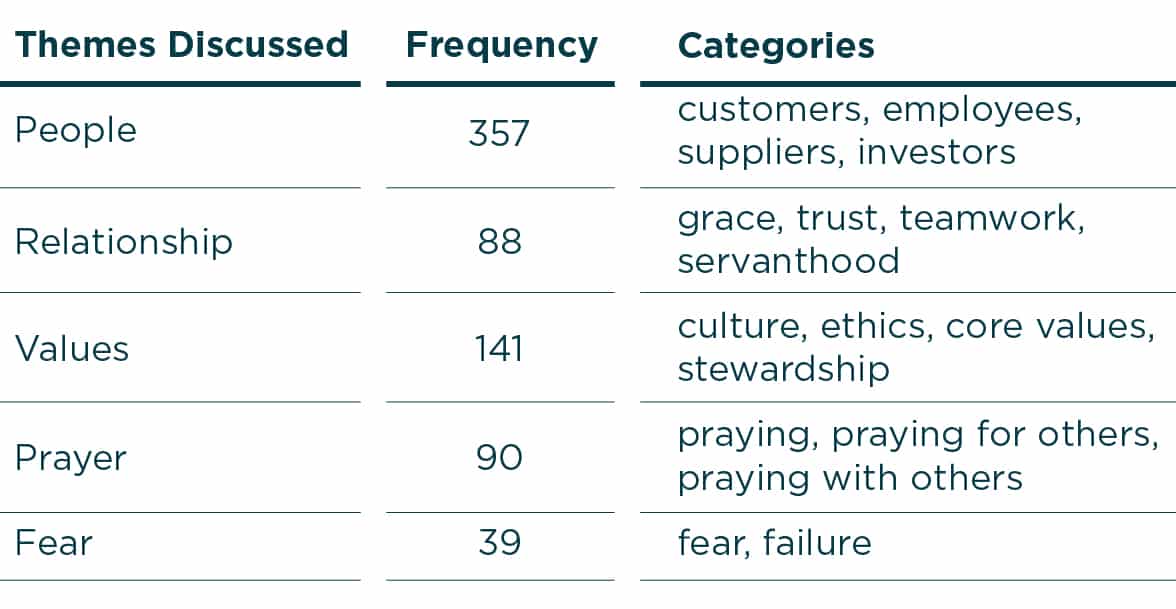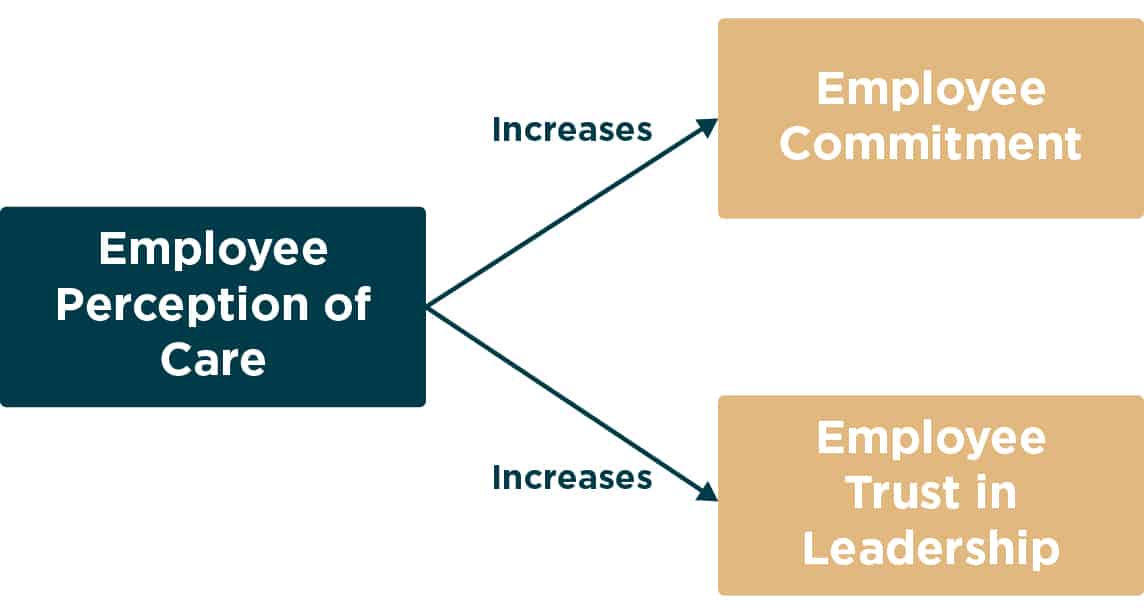Ideas from 60 Christian Executives on Integrating Faith in Business
By Wheaton Center for Faith and Innovation (A C12 Resource Partner)
How do Christian leaders integrate their faith into their business decisions to create competitive advantages in employee retention and business strategy?
This is the question that propelled the Wheaton Center for Faith and Innovation’s (CFI) research for the 2020 State of Faith in the Marketplace report. CFI is a full-service research and training institute at Wheaton College, driven by many of the same aspirations that drive C12 members: cultivating a needed integration of faith and business, finding innovative solutions to complex problems through the wisdom of the Bible, and seizing the power of community with other Christ-centered leaders. Our annual State of Faith in the Marketplace research is one way we seek to better understand how Christian leaders integrate their faith in their daily business decisions. A glimpse at some of the major findings of this research should encourage us in the faith integration that is occurring in the marketplace and challenge us toward an even more transformative approach to our leadership.
To conduct research for this report, CFI led five corporate case studies in partnership with nearly 100 Christian executives and thought leaders. We collected both quantitative and qualitative data to explore the systems that result from Christ-centered leadership and the potential measures that indicate comparative advantage.
We began our exploration with focus groups at our annual Executive Forum, curating conversations with nearly 60 executives about their experiences integrating faith into business practice. We asked the following five questions:
- How do you integrate your faith in your organization?
- What is the impact of your faith on your business outcomes?
- What are the challenges you face in integrating your faith in your organization?
- What resources could better enable you/your organization to overcome challenges to integrating faith and work?
- How does faith impact the strategy, decision-making, and operations in this area/ function?
The themes most pervasive across the responses were people, relationships, values, prayer, and overcoming fear and failure.

The group discussed “people” at length—defining them as those whom Christians are called to love, commending life transformation as a positive outcome of faith and business integration, while also recognizing opposing or differing beliefs as a challenge to effective integration. They identified relationships with employees, customers, and suppliers as a social mechanism to build trust, demonstrate grace, and serve others.
Prayer as Primary Practice for Integration
When asked how they integrate their faith in their work, CFI executive members commonly responded with “spiritual practices,” which can include prayer, worship, reading and meditating on Scripture, fasting, rest, fellowship, and giving. While several of these practices were specifically mentioned, and people and values were the most discussed topics of conversation, prayer emerged as the primary influence or method of integrating faith and business.

“I don’t know how I’m going to achieve this goal but I’m going to pray and rely on the Holy Spirit.”
—Christian Executive Participant
Defined as “spiritual communion with God,” prayer is inspired by an understanding of Scripture (the second most discussed spiritual discipline). Prayer establishes a relationship with God that directly impacts our relationships with people, which also translates to the interactions between leaders and their employees.
Frequently in the marketplace, leaders seem to focus on supporting their employees physically but forget to care for their employees’ intellectual development and spiritual health. Praying for employees can remind us as leaders of the whole, integrated humanity of our employees (mind, body, and soul). Furthermore, multiple executives mentioned praying not just for but with their employees. One executive said,
“In 35 years of praying for employees, we’ve only had one person say no, and it was the employee’s husband.”
—Christian Executive Participant
Another executive echoed the positive response of her employees, saying that no one had ever refused her prayer. Praying for and with employees is a way to express care for them, as well as contribute to their spiritual health. For Christian employees, it is a great encouragement, and for non-Christian employees, prayer can plant seeds of faith. (See C12’s recent meeting resource on incorporating prayer in business.)
Care Influences Employee Engagement
In addition to gathering data through focus groups at the Executive Forum, CFI conducted in-depth case studies and interviews across five organizations actively integrating faith into daily business practices. We collected survey data from nearly 350 participants across all levels of the organizations, prompting them to reflect on the care they perceive and the level of organizational commitment, trust, and personal growth they have experienced at work.
Leaders from industries across the marketplace continue to express the dire challenge of sourcing, retaining, and developing talent. Overwhelmingly, the data provided evidence to indicate that the integration of faith and love in the workplace enables employees to be more committed to, engaged in, and satisfied in their work. Our research suggested that employees’ perception of care from the company they work for drove an increase in employee commitment to the organization, as well as an increase in trust in corporate leadership.

Further Findings
Integrating faith in business can be intimidating for some leaders. One forum participant expressed fear “that people will hold me to a higher standard that I am not capable of attaining.” Participating leaders shared how they overcome their fears as well as overcome other common challenges like retaining and developing employees, creating values-based cultures, and resolving conflict to improve business performance. Christian leaders have a responsibility to care for the people entrusted to them, and our studies have proven the integration of leaders’ faith enhances both businesses and lives.
Download the 2020 State of Faith in the Marketplace abstract prepared especially for C12 to learn more about our findings and the results of Christian leaders integrating their faith and businesses.
To access the complete report and receive further research findings, visit www.wheaton.edu/cfi.
March 12, 2021





